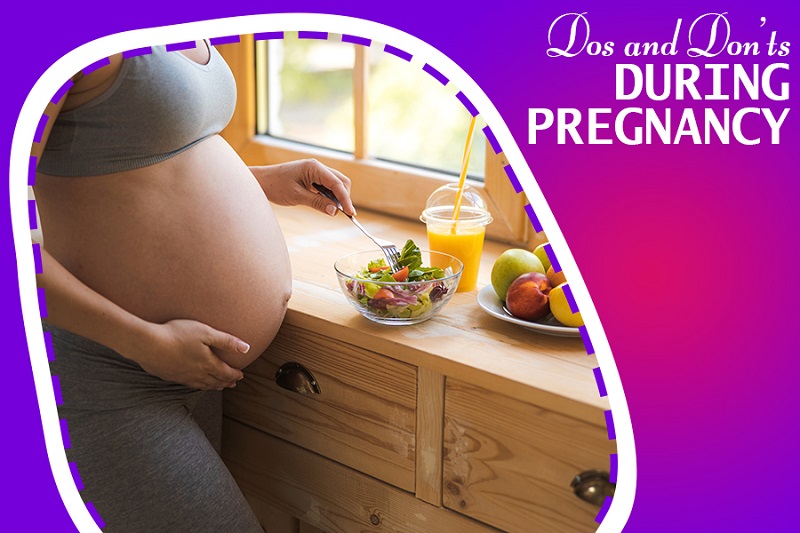During Pregnancy – Dos and don’ts By Experts

Dos and don’ts during pregnancy
Many women have gotten pregnant and given birth successfully, but whenever someone finds out they are pregnant, people begin to treat them as though they are fragile. There is also an abundance of advice from different people concerning what to do or avoid during pregnancy.
However, most women are strong during pregnancy and can go about their normal activities throughout the pregnancy period. There have also been cases of pregnant women engaging in different physical activities and sports and not being affected by it.
Unlike what most people think, a pregnant woman can be strong and engage in her regular daily activities while taking care of the body as she would without pregnancy by eating healthy, resting, exercising and staying hydrated.
A pregnant woman undergoes several changes during pregnancy, so it’s important that she stays healthy physically, emotionally and mentally, and book a gynaecologist appointment regularly to monitor her health and the baby.
Things to avoid during pregnancy
If you are pregnant, you would need to avoid smoking, alcohol, and areas with a smell. Before eating meat, ensure it is cleaned and cooked properly. Healthcare providers advise pregnant women to take only pasteurised daily products and avoid certain foods like soft cheese because it increases the risk of salmonella poisoning. You’d have to cut down the intake of coffee at most two cups a day and other caffeinated drinks
Precautions during different pregnancy stages
-
During the first trimester
The first trimester is usually the most challenging period for most pregnant women. Some women gain weight, feel sluggish and tired, with morning sickness. Taking time out to relax and rest during this period is necessary.
You can consult your doctor or trainer about changing your exercise routine to adjust to your current state. You may have to avoid exercises that strain the abdominal area.
Ensure your diet is balanced and include enough vegetables, protein, fibre, fruits and carbohydrate. Some unripe fruits like unripe papaya may be harmful. You also need to take vitamin supplements and folic acid to aid the child’s proper development. Ensure you take a lot of water to stay hydrated.
You can talk to your partner about how you feel and try to make your partner involved in the process to help them understand how you feel. You may likely go through sudden mood changes but let your partner know about these changes.
-
During the second trimester
Most women feel more energised and comfortable with their body at this point. In your second trimester, ensure you continue to eat healthy foods containing plenty of vitamin C and sufficient iron.
You may want to consider enrolling in a Lamaze class, which is designed to guide expectant mothers through what they would experience during the delivery process. Lamaze classes are also an opportunity to bond with other expectant mothers, and you can share your experience with people going through the same thing as you. Ensure you rest, eat healthily and exercise.
-
During the third trimester
During this final phase of your pregnancy, you need to avoid anything that causes stress, as extreme stress can cause your water to break. If you intend to travel, ensure your means of transportation has enough space to allow you to stretch your legs.
You also need to rest and get enough sleep. Sleeping at this stage may be difficult because of your stomach size, so you can try sleeping on your side. Ensure you pamper yourself while you await your baby’s arrival.
If you have concerns about your pregnancy, ensure you contact the gynaecologist at Gynaecology Clinic on 020 7183 0435 to seek medical care.